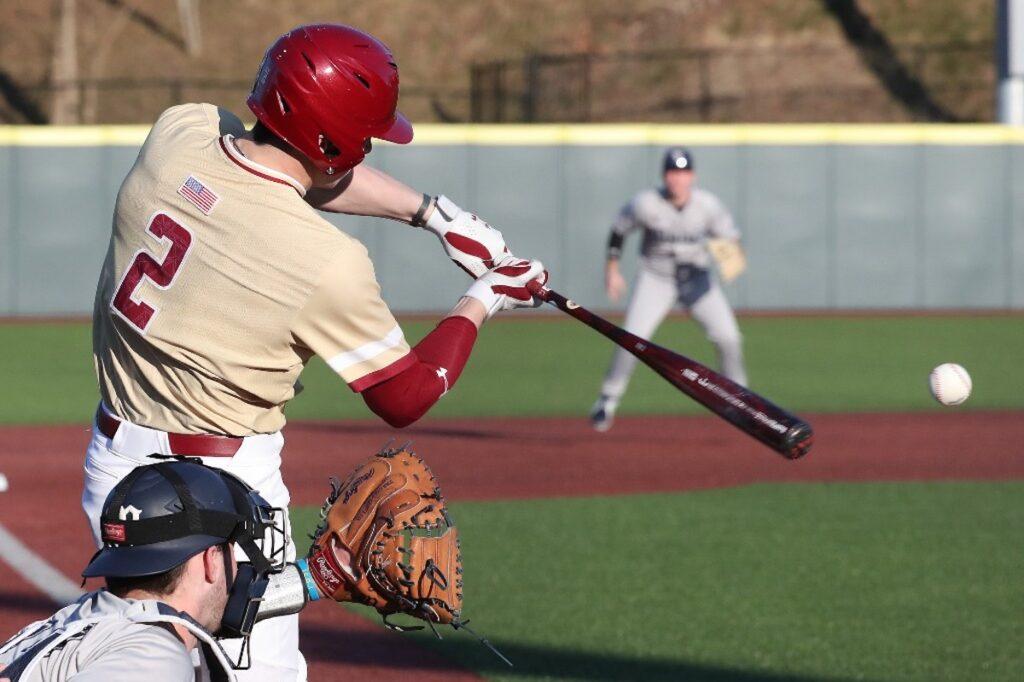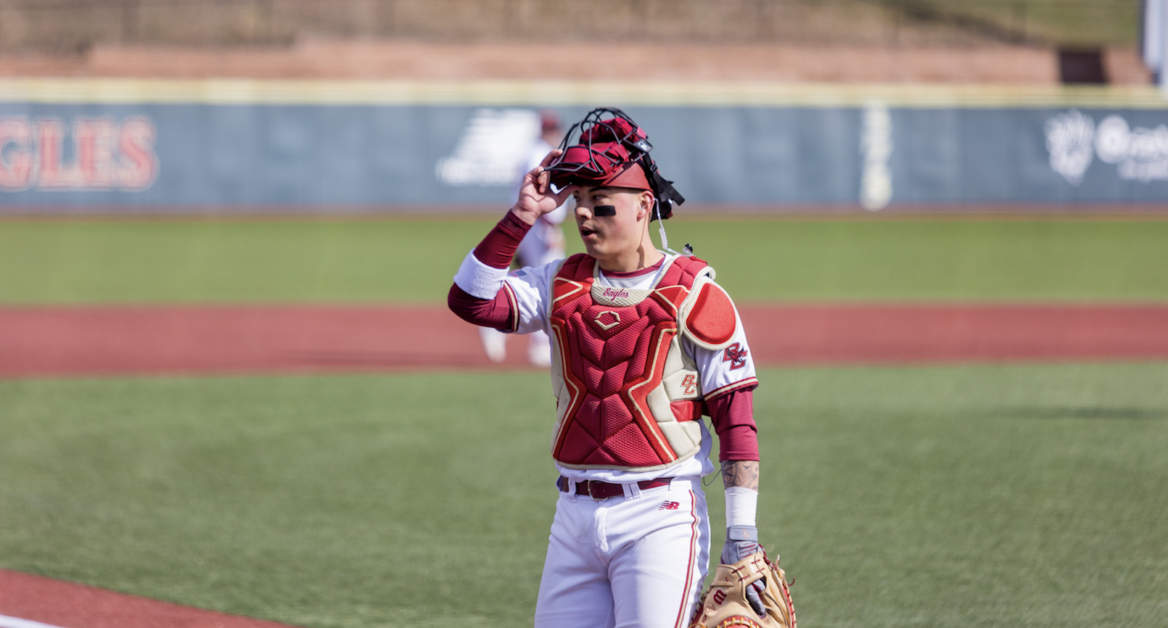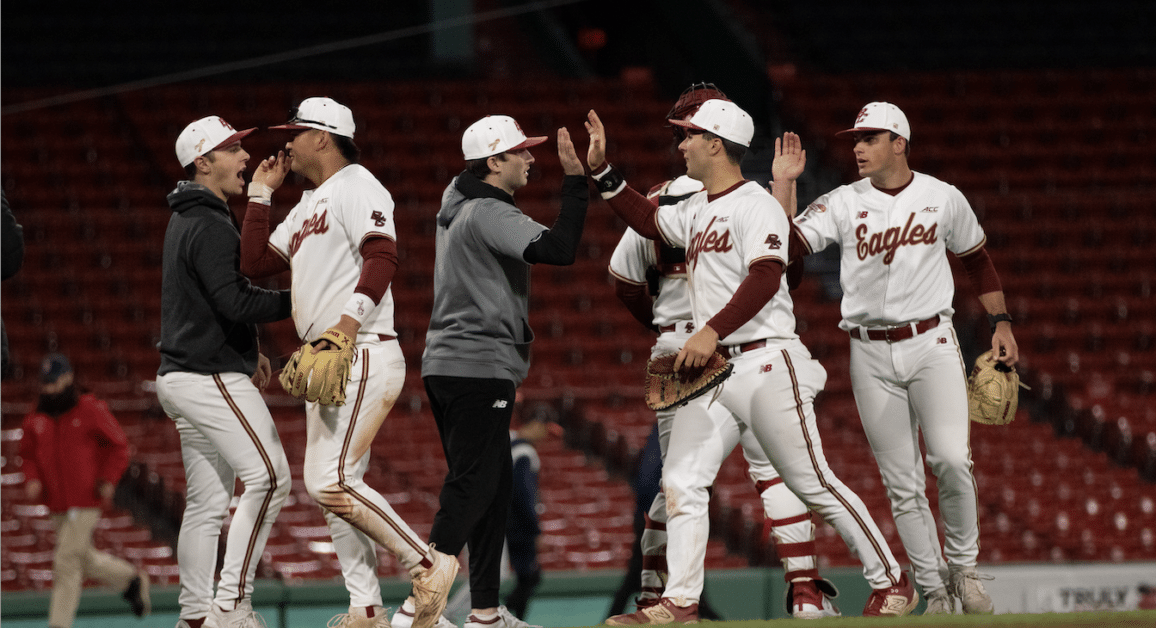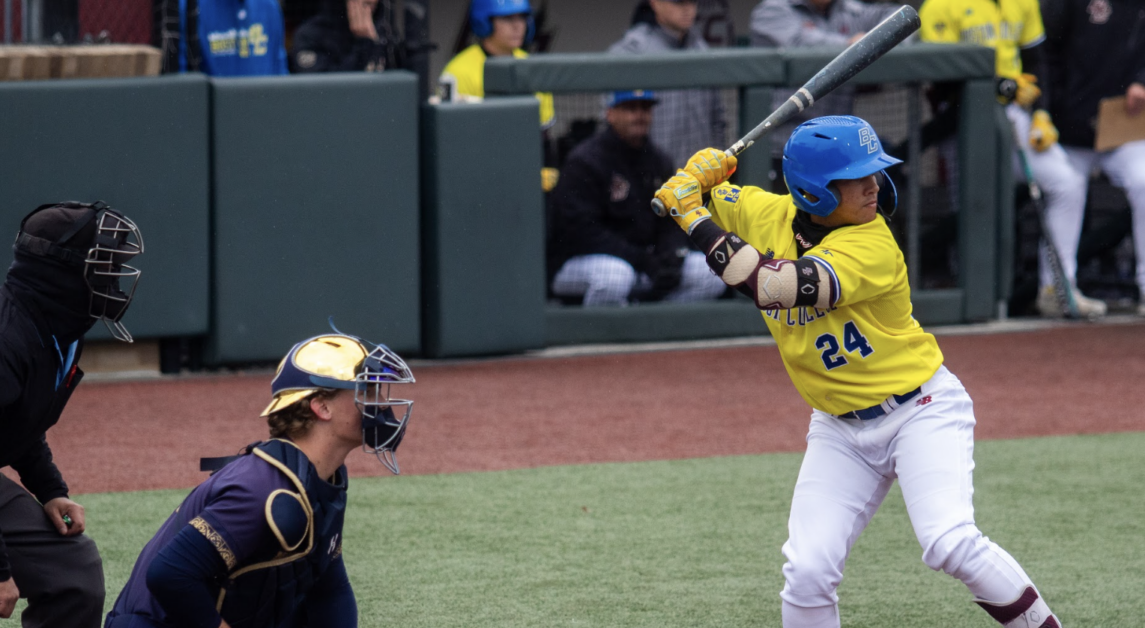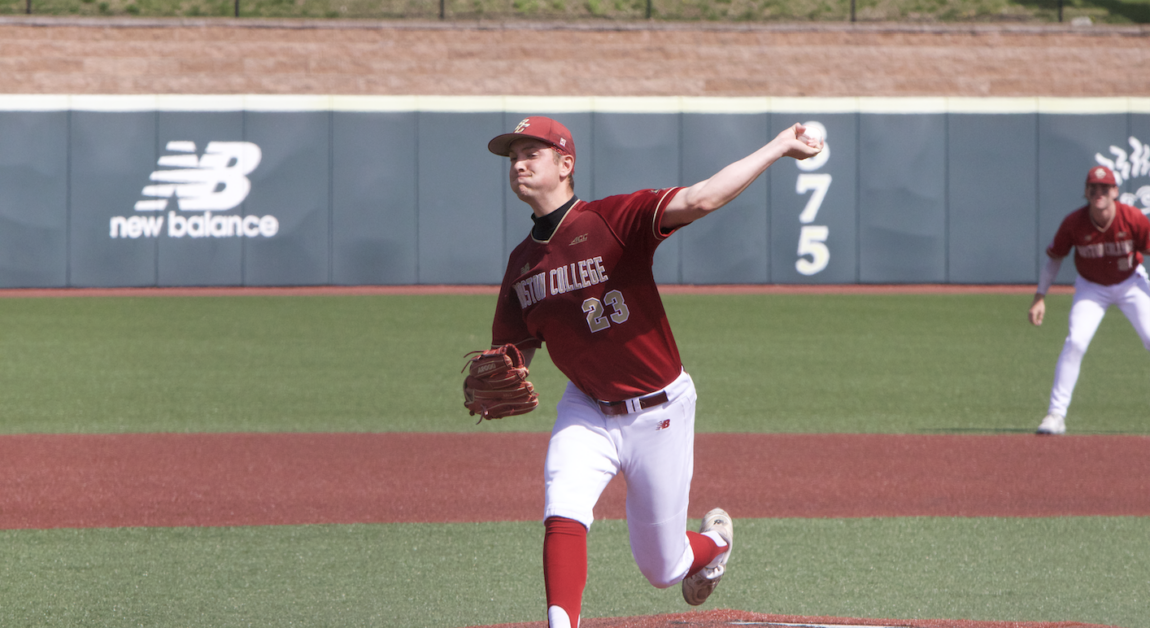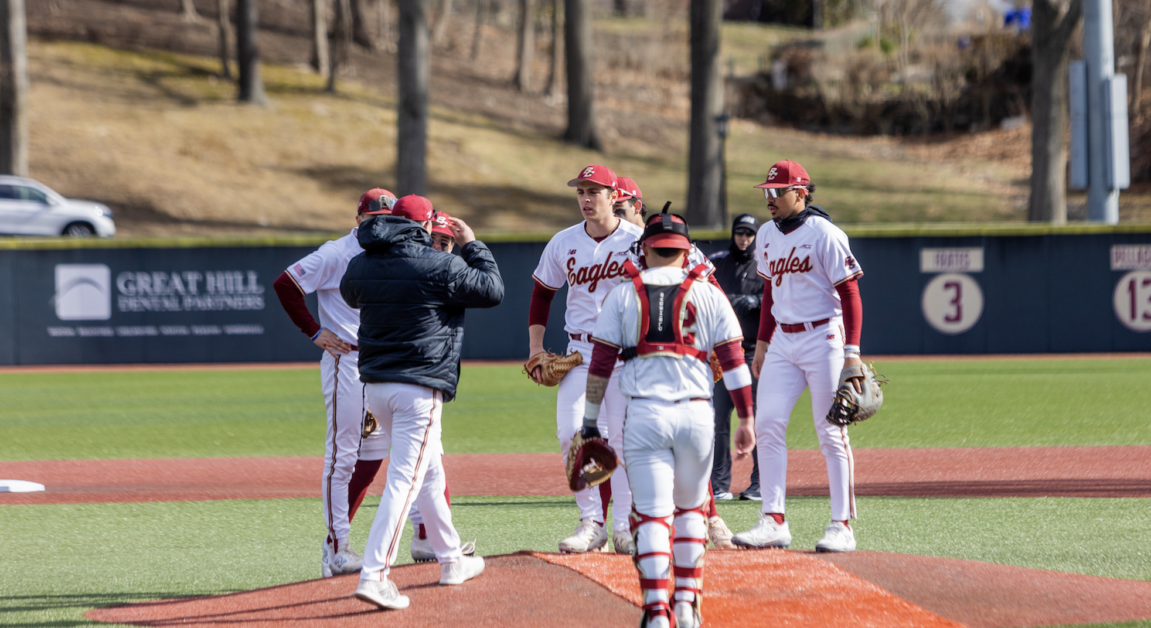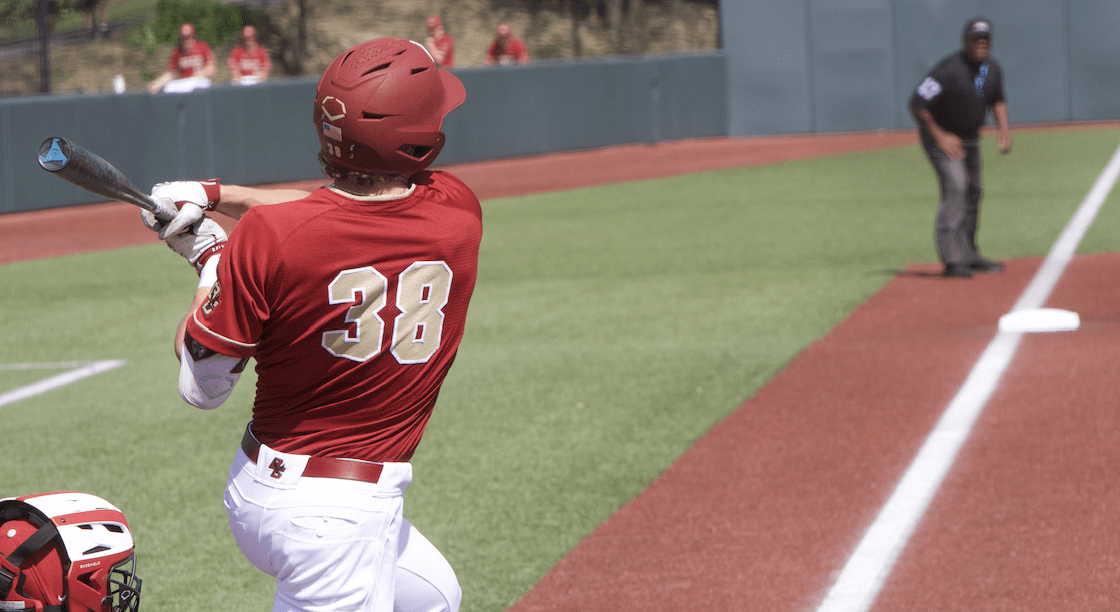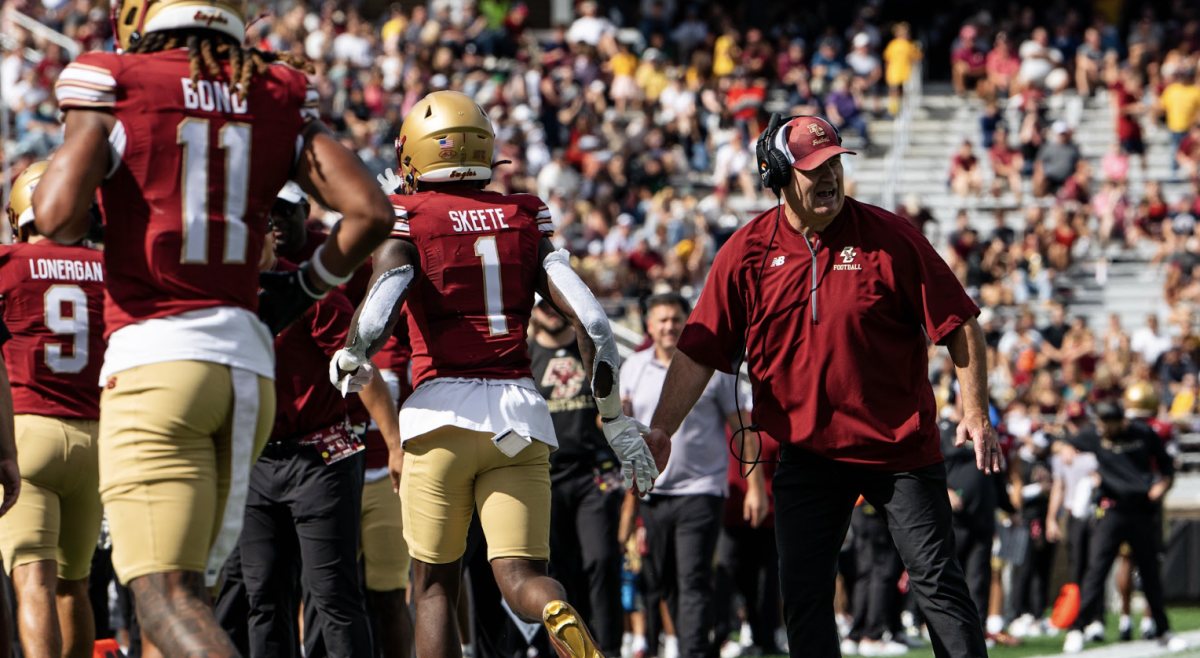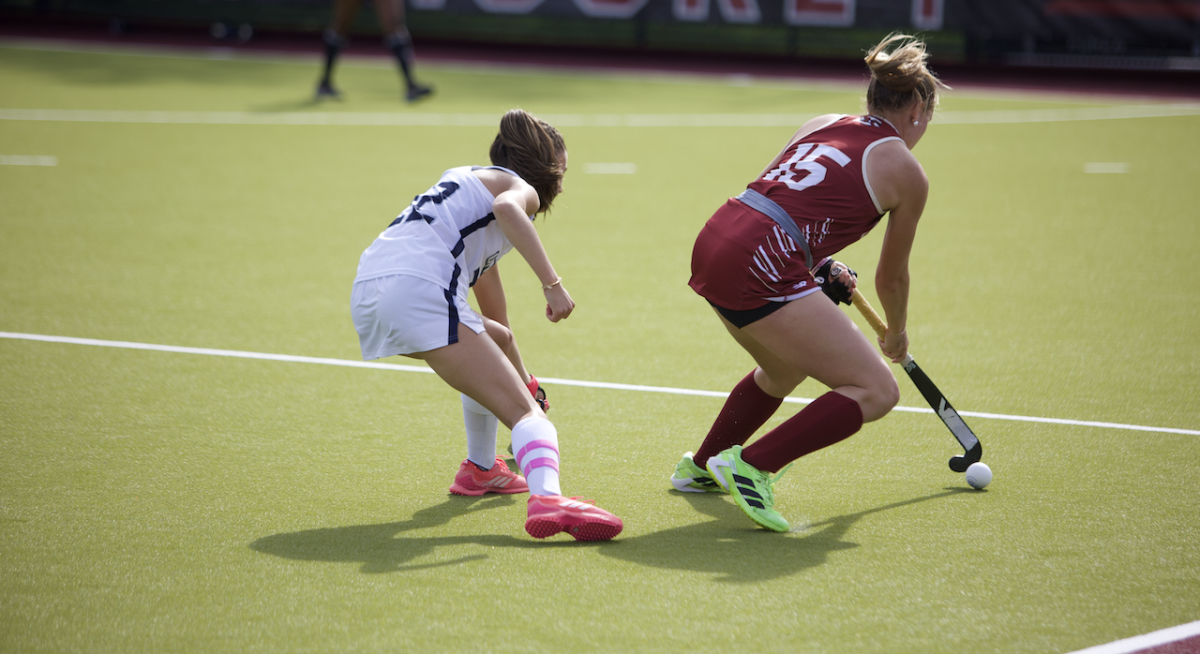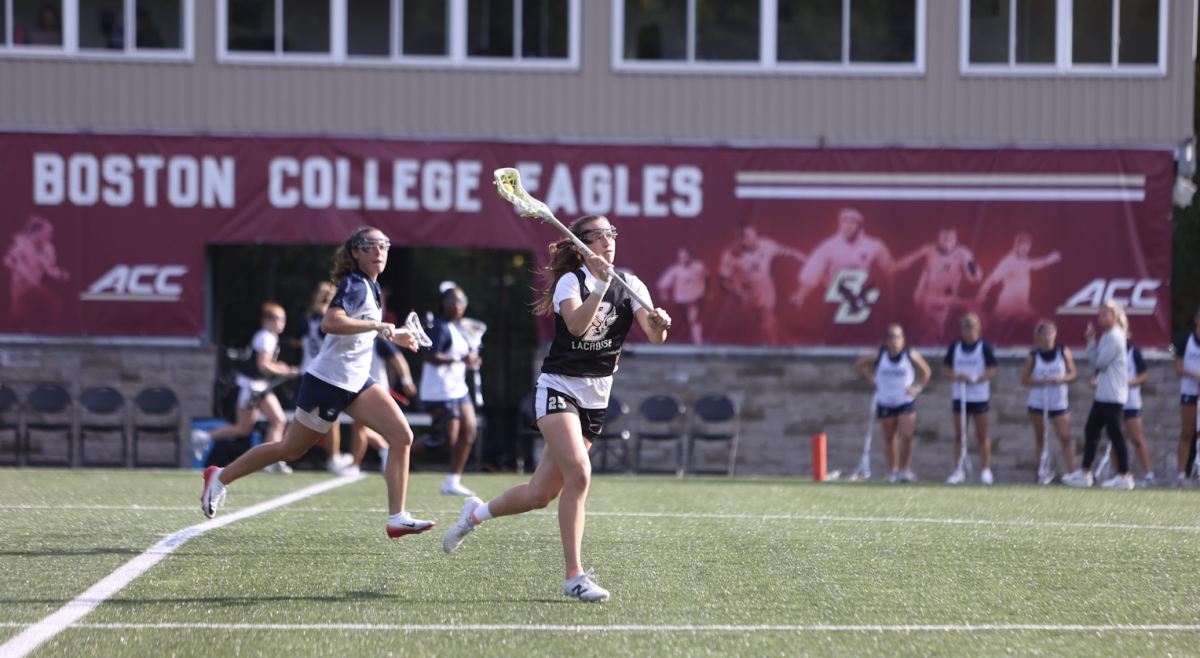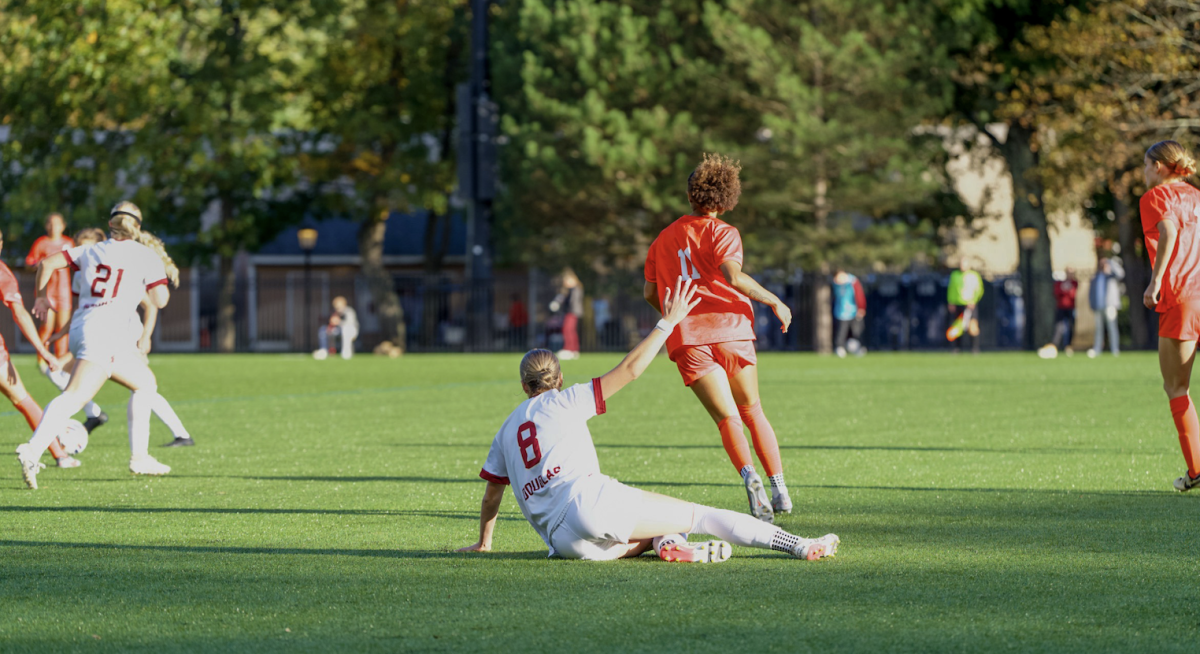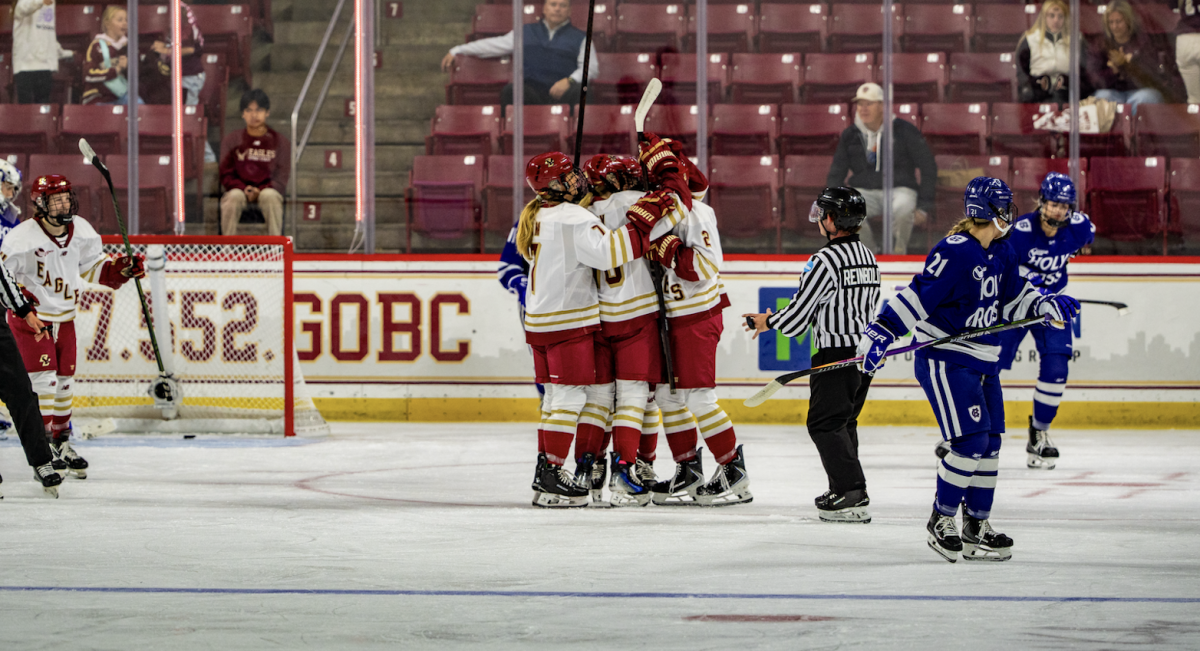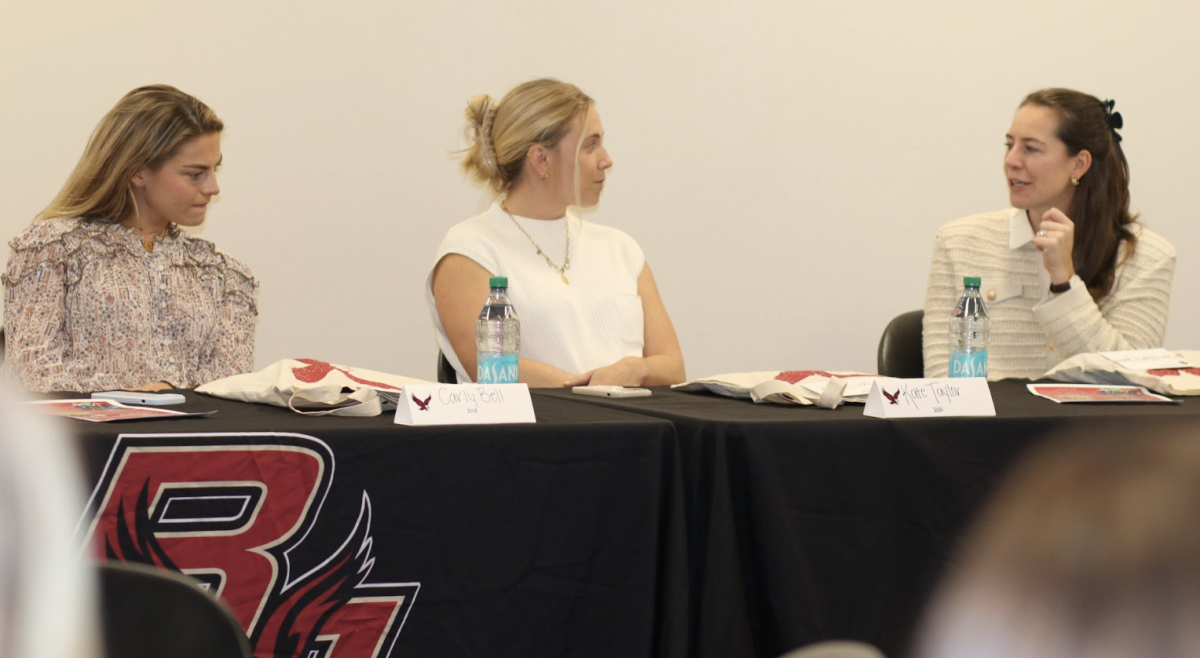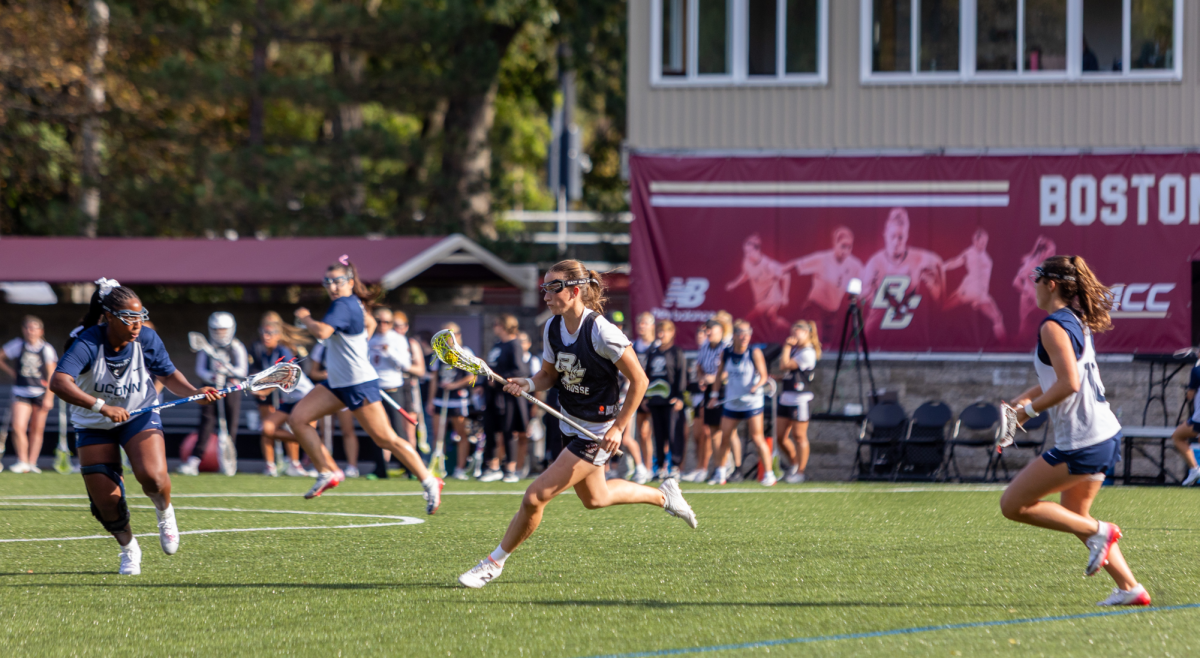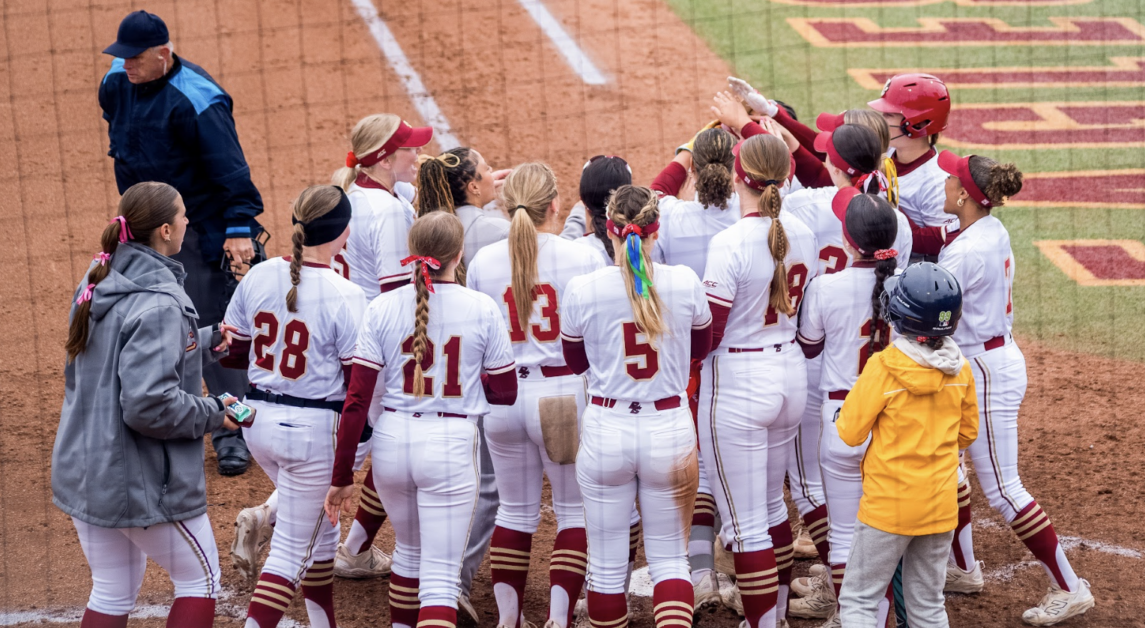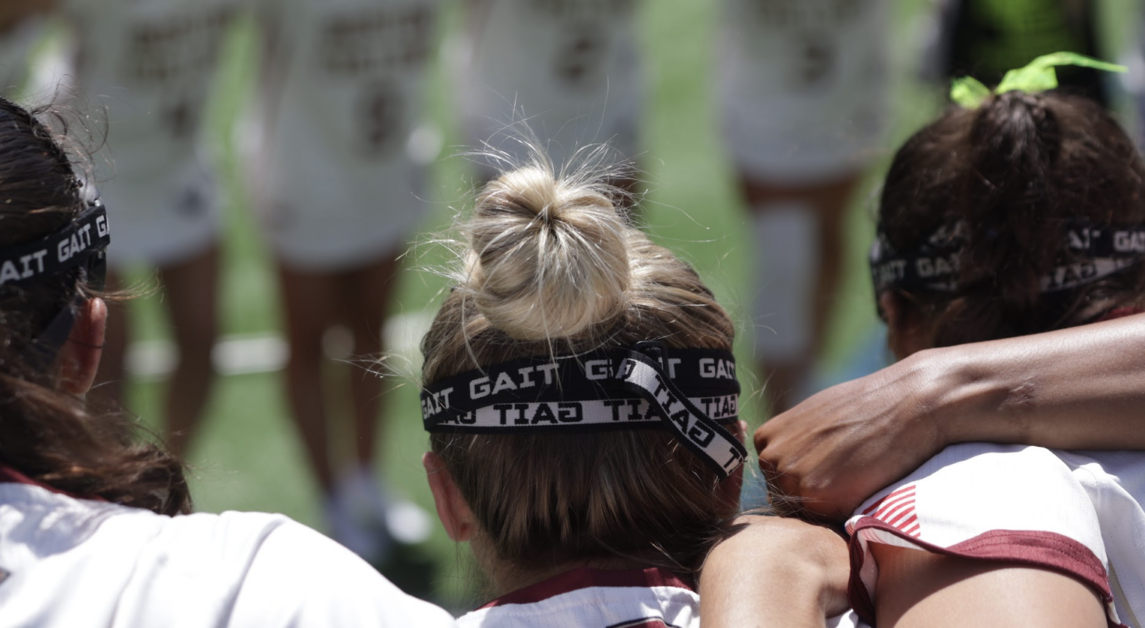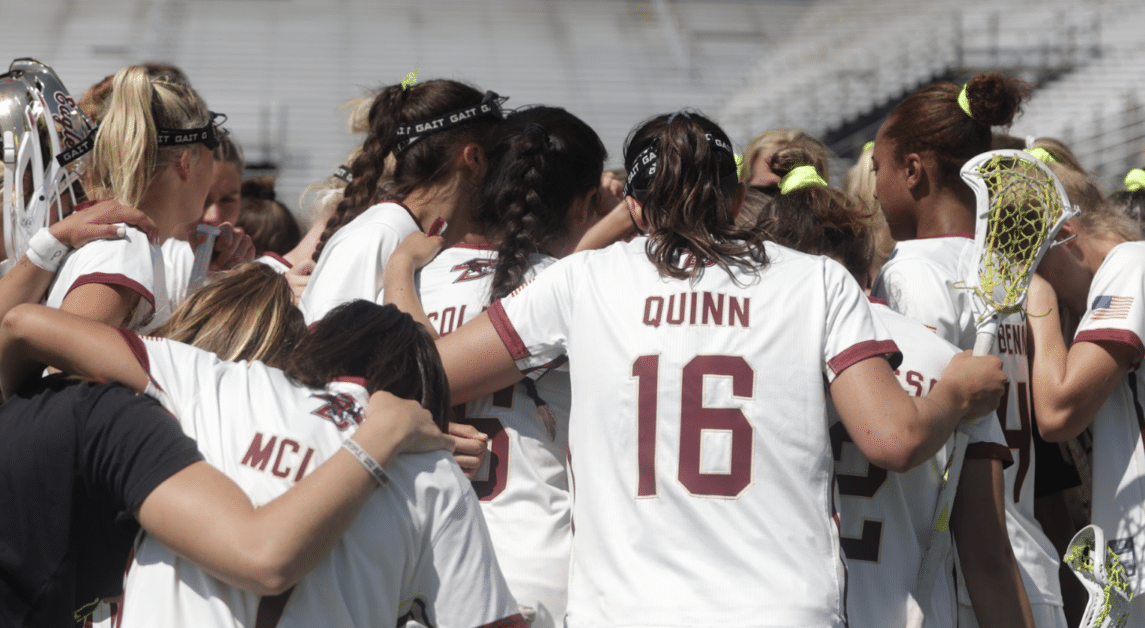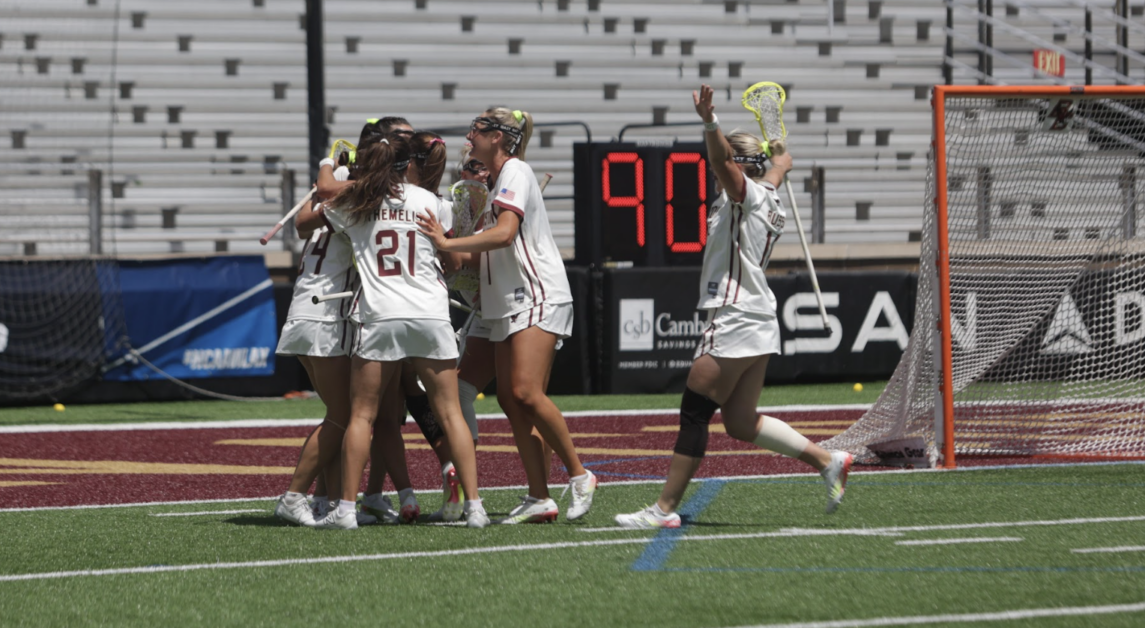Boston College baseball has never been better. In less than a month, it has pulled off one of the greatest comebacks in history, Sal Frelick is on track for a historic season, and BC has earned its highest Baseball America ranking in program history—No. 13. With the Eagles setting records practically every time they take the field, one question looms: how much longer can BC’s hot streak last?
BC is 9-5 so far this season. Four of its wins have come against ranked opponents, and all but two were earned on the road. An early start earned the Eagles a program-high No. 13 ranking, and if the Eagles can shrug off their recent series loss and continue their winning ways in their upcoming matchup against No. 18 North Carolina, that ranking could very well increase.
BC’s success could be a fluke. All odds said it should have never won its third game against Auburn. Upon deeper examination, however, BC appears to be playing worse than it could—or should—be.
Seven of BC’s nine starters are batting below .300. Of that seven, three are under the Mendoza Line. In 2019, only five starting Eagles hit below .300 and not one fell below .200. While Frelick and Luke Gold’s .407 and .339 averages might not last, the majority of BC’s lineup is actually slumping.
One such player is Cody Morissette. Although Morissette momentarily broke his cold streak with a 3-for-4, two-home run performance against Rhode Island, his .277 average is hardly on par with what is expected of this year’s No. 43 MLB Draft prospect. He hit .320 as a freshman in 2019, and is set to exceed that this season if his .448 2020 average is any indication.
Morissette’s slow start proves that BC will not need to only rely on its stars this season to win games. The trio of Mason Pelio, Frelick, and Morissette were to credit for much of BC’s preseason relevance, but three players alone cannot lead a team to greatness.
Pelio can only pitch in a fraction of BC’s games, and Frelick and Morissette account for just 22 percent of the Eagles’ offense. Other players on the roster have to step up as well, and so far not everyone has. BC is averaging almost seven runs per game with an offense largely playing short of its potential.
Defensively, Pelio is also off to a slightly rocky start. Pelio is rated as the No. 31 draft prospect, but his 5.21 earned run average (ERA) is lower than the cumulative ERA from his freshman year—the last full year the junior played. He started the season with five shutout innings in a win against Charleston Southern but has been inconsistent since.
He gave up six runs in four innings in his next start against Duke but came back against Auburn, pitching 5.2 shutout innings for the win. Discounting his Duke and Louisville losses, Pelio has been near perfect, so his ERA should start to drop soon, but his early inconsistency could become a problem.
Joey Walsh has been a consistent highlight of BC’s pitching staff. Walsh’s 3.12 ERA seems about average, but it is nothing to be alarmed at. His worst outing so far came in his start against Duke where he went for 3.2 innings and gave up four runs, only two of which were earned.
That outing would not be optimal for a starting pitcher, but Walsh is not a starting pitcher. It’s unclear exactly which role Walsh plays, but with just one start and three out of four of BC’s saves, his use extends far beyond that of a starter.
Walsh is also unusual as a closer. He has thrown for at least three innings in two out of three saves this season, hinting at stamina greater than that of the average closer. His best performance of the season came in BC’s comeback win over Auburn when Walsh threw two lights-out innings, limiting the Tigers to one hit and earning his first win of the season.
BC’s first- and fourth-most used pitchers, Emmet Sheehan and Alex Stiegler, have also struggled up to this point in the season. Sheehan is boasting a 6.75 ERA over four starts, and Stiegler has posted a more excusable 6.43 ERA over 14 innings in relief.
BC’s pitching has, overall, been underperforming, yet the Eagles have still been winning. If its offense continues producing at the rate it has been, BC’s pitching won’t need to do much to win games. At No. 13 in the country, however, BC is not just trying to win games. Pitching wins championships, and BC’s whole staff will need to be performing at the top of its game if it wants a run at Omaha.
If I had predicted BC’s record up until this point on opening day I would have guessed 8-6. BC’s sweep over Charleston Southern was not a surprise, and it would have made sense to give the Eagles at least one win against Duke, Auburn, and Louisville. Add on gimme wins against Maine and Rhode Island and that’s the season so far. Instead, BC took two against both Duke and Auburn while dropping all three to Louisville, resulting in two unexpected wins and a 9-5 record.
But what does 9-5 really mean?
BC has had seven for-sure wins, four for-sure losses, two flip-flop wins, and one flip-flop loss. One flip-flop win came against Duke and the other came against Auburn while BC’s flip-flop loss came against Louisville.
BC won its third game against Duke 5-2, but it could have gone either way. In the bottom of the seventh, Duke had two runners on with just one out. An extra-base hit would have scored at least one and could have sparked a rally. Instead, the Blue Devils left both stranded. In the eighth, Duke was in an even better position with runners on first and third and no outs. A home run would have tied the game, but instead, Stiegler retired three straight Duke batters.
The Eagles should not have won their final game against Auburn. Few teams have ever come back down eight runs with two outs in the ninth, so while amazing, BC’s ability to do so can be chalked up to luck.
BC also had a solid shot at winning the third game in its series against Louisville. The Eagles led 4-0 in the second inning, and later led 6-4 in the seventh. Had it not been for Louisville’s four-run bottom of the eighth, BC would have walked away with a two-run win.
Adjusted for flip-flops, BC should be just about 8.25-5.75. Its actual 9-5 record is a product of a combination of luck and clutch baseball. The underperforming Eagles have earned their bright start, but the road ahead will be challenging. The ACC is full of top baseball teams, many of which will go head to head with the Eagles in the next couple of weeks.
Luckily, BC really is that good, it just hasn’t shown its full potential yet. If its entire roster can play up to expectations, BC should have a historic season. If its roster can exceed expectations, don’t be surprised if BC makes it more than a couple of rounds in the College World Series. If the luck of the first couple of weeks holds, BC might just be able to bring rings back to Brighton.
Featured Image Courtesy of BC Athletics

